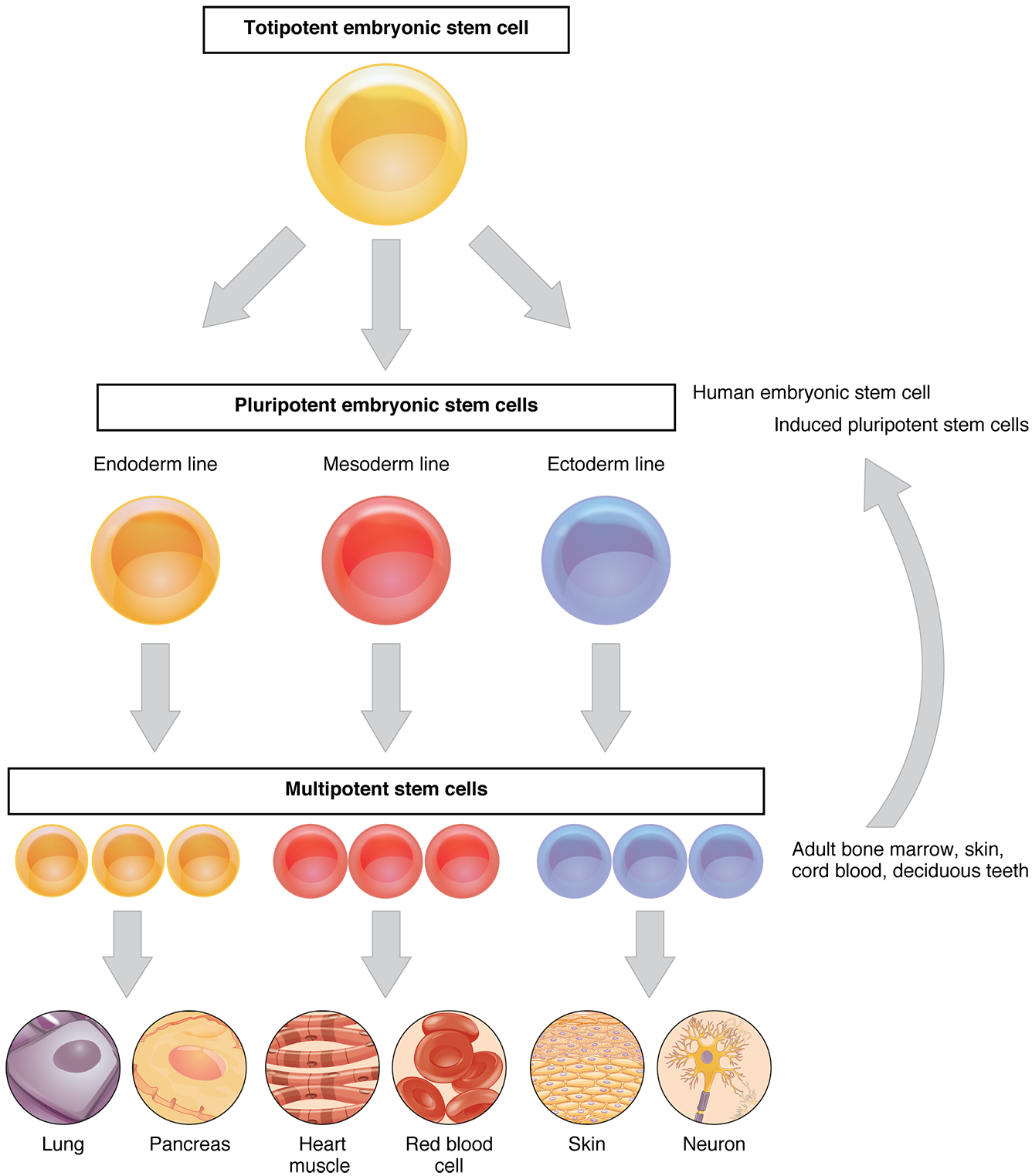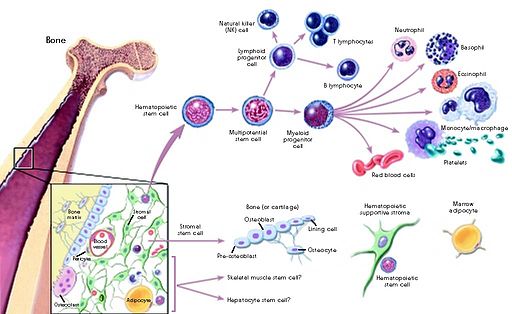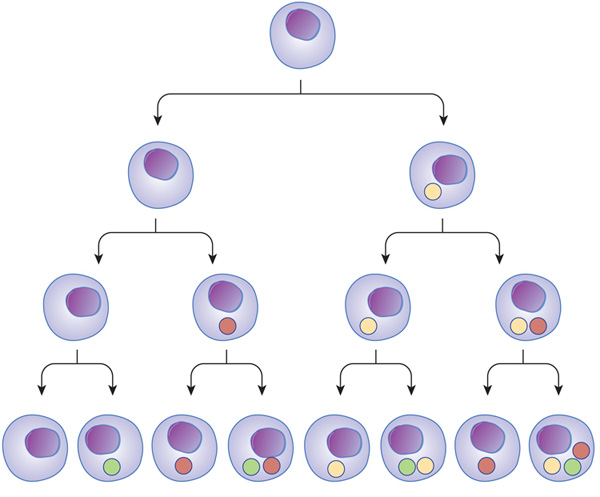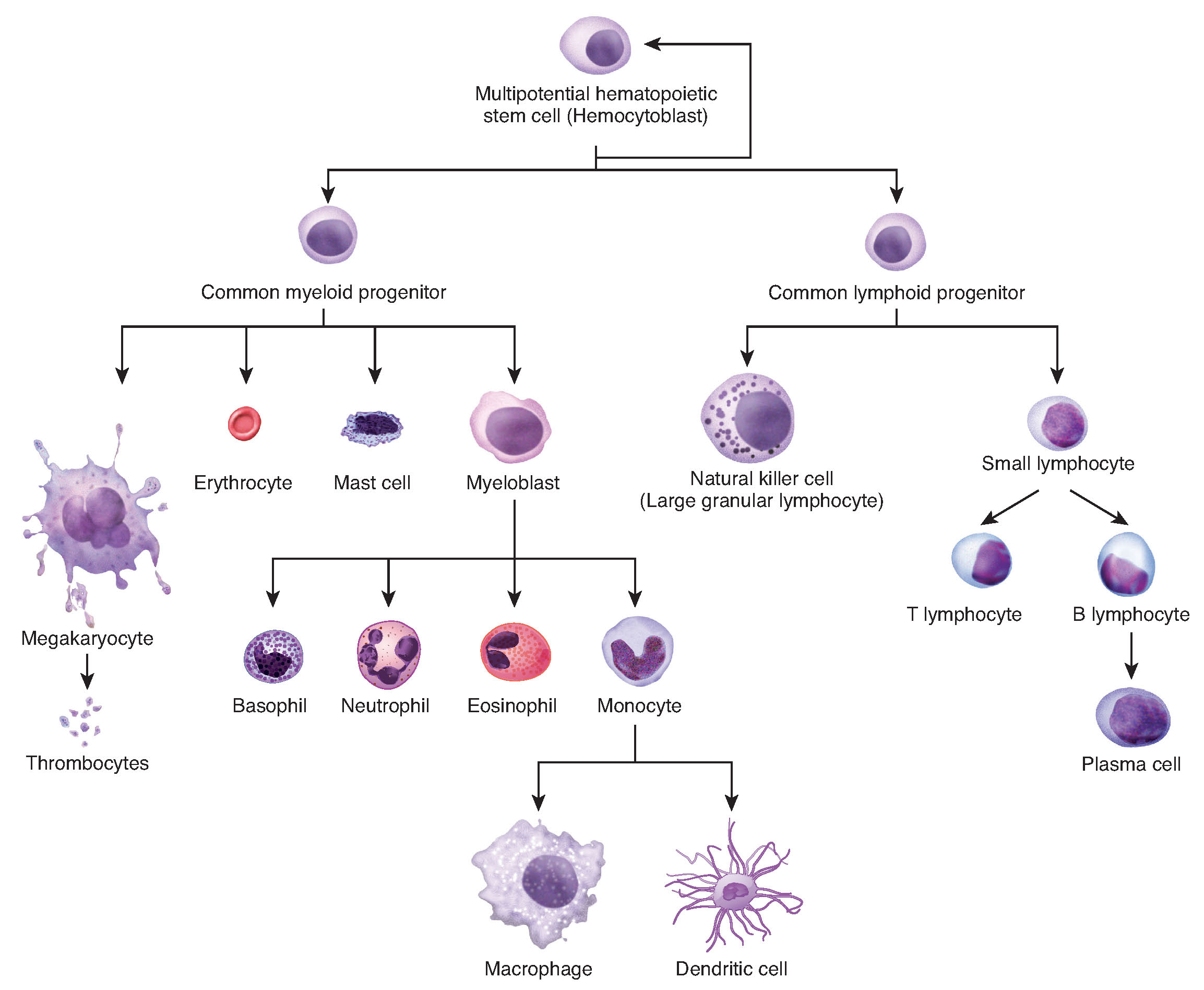Cellular Differentiation Results From Which of the Following
A stem cell is an unspecialized cell that can divide without limit as needed and can under specific conditions differentiate into specialized cells. A process where a fertilized egg cell sinks into the wall of the uterus.

Cellular Differentiation Anatomy And Physiology
These components are either synthesized by proteins or are themselves proteins.

. Cell differentiation is most directly regulated by. Cells differentiate because different areas of the dna are activated in each cell type. It often happens that when these cells comes with alcohol or antibiotics the result may be disruption on tissue formation.
A process in which an unspecialised cell develops into a specialized type of cell. Choose the answer below that best completes the sentence. The process of cell differentiation results in the production of many types of cells including germ somatic and stem cells.
Results from the differential expression of genes that are responsive to environmental signals. Stem cells are divided into several categories according to their potential to differentiate. Cell differentiation occurs only in adult organisms.
A process in which an specialised cell develops into a unspecialised type of cell. 23366 results page 11. Adenine thymine guanine and cytosine.
What effect might these molecules have. Which of the following is the key factor driving cellular differentiation in the body. The process of cellular differentiation is a direct result of A.
Differentiation results in the presence of cell types that have clear-cut identities such as muscle cells nerve cells and skin cells. Results from the loss of particular genes from the nucleus of the differentiated cell. The process of cell differentiation results in the production of many types of cells including germ somatic and stem cells.
Differentiation is the process by which unspecialized cells become specialized to carry out distinct functions. Say for example if the cell is of type A then after the cell differentiation process that cell will change into type B. A stem cell is an unspecialized cell that can divide without limit as needed and can under specific conditions differentiate into specialized cells.
Which term below does not describe a method by which cells adapt. Specilized cells blood skin nervous etc cannot be. Involves the persisting totipotency of.
Cellular differentiation or cell specialization results from _____. This theory proposes that cell specialization results from the function of the appropriately selected group of genes in each specialized cell type and the initial section of this book is. - Gene expression produces proteins ACTIN MYOSIN transcription factors required for muscle cell differentiation - Accumulation of muscle proteins increases the specialization of cells which results in the production of MYOBLASTS.
Cell differentiation is critical during embryonic development. Cells differentiate because the dna in each cell of an organism is different. Rate of transcription d.
Cell differentiation always involves selective loss of certain genes from the genome mesoderm cells are exposed to transcription factors. Differentiation results from differential gene expression. A differential is the result gained when mathematical differentiation is applied to a function.
Which cellular process results in this amount of atp production Asked by wiki 10062021 in Biology viewed by 49 persons Cells can generate as many as 36 to 38 molecules of adenosine triphosphate atp from the metabolism of one molecule of glucose. Throughout development and adulthood the process of cellular differentiation leads cells to assume their final morphology and physiology. Which of the following statements is true about the process of specialization.
Chemical gradients in the cellular environment b. Cell differentiation cannot be affected by the environment. The specific components of a given cell provides its special characteristics.
Which cellular process results in this amount of. What is Cell differentiation. Stem cells are divided into several categories according to their potential to differentiate.
Then the zygote begins to divide. The diagram shows the process of cell specialization from a single stem cell. Cellular differentiation is at present interpreted in terms of the theory of variable gene activity one of the most potent unifying theories to develop in the biological sciences during this century.
Cell differentiation is most directly regulated by -. First one cell becomes two then two cells become four four cells become eight and so on and so forth until a large ball of identical cells is formed. A stem cell is an unspecialized cell that can divide without limit as needed and.
Differentiation is the process by which unspecialized cells become specialized to carry out distinct functions. Expression of genetic coding c. DNA is composed of _____ base chemicals called ________.
The turning off of some genes and the turning on others B. Cell differentiation is a series of actions formed where the category of the cells changes. Differences in cellular genomes.
Cellular nutritional status B or C. During fertilization in multicellular organisms a sperm cell fuses with an egg cell to form a zygote. Mitochondria endoplaasmic reticulum golgi aparatus and centrioles are all examples of ______.
Cell differentiation is the process of cells becoming specialized as they body develops. The separation of stem cells from each other so they do not know what their neighbors are becoming C. Cell differentiation is critical during embryonic development.
Differentiation in maths is the function which finds. Gekumyeforeskin is waiting for your help. A process in which an egg cell in fertilised.

Cell Differentiation Process And Steps Specification Determination


No comments for "Cellular Differentiation Results From Which of the Following"
Post a Comment